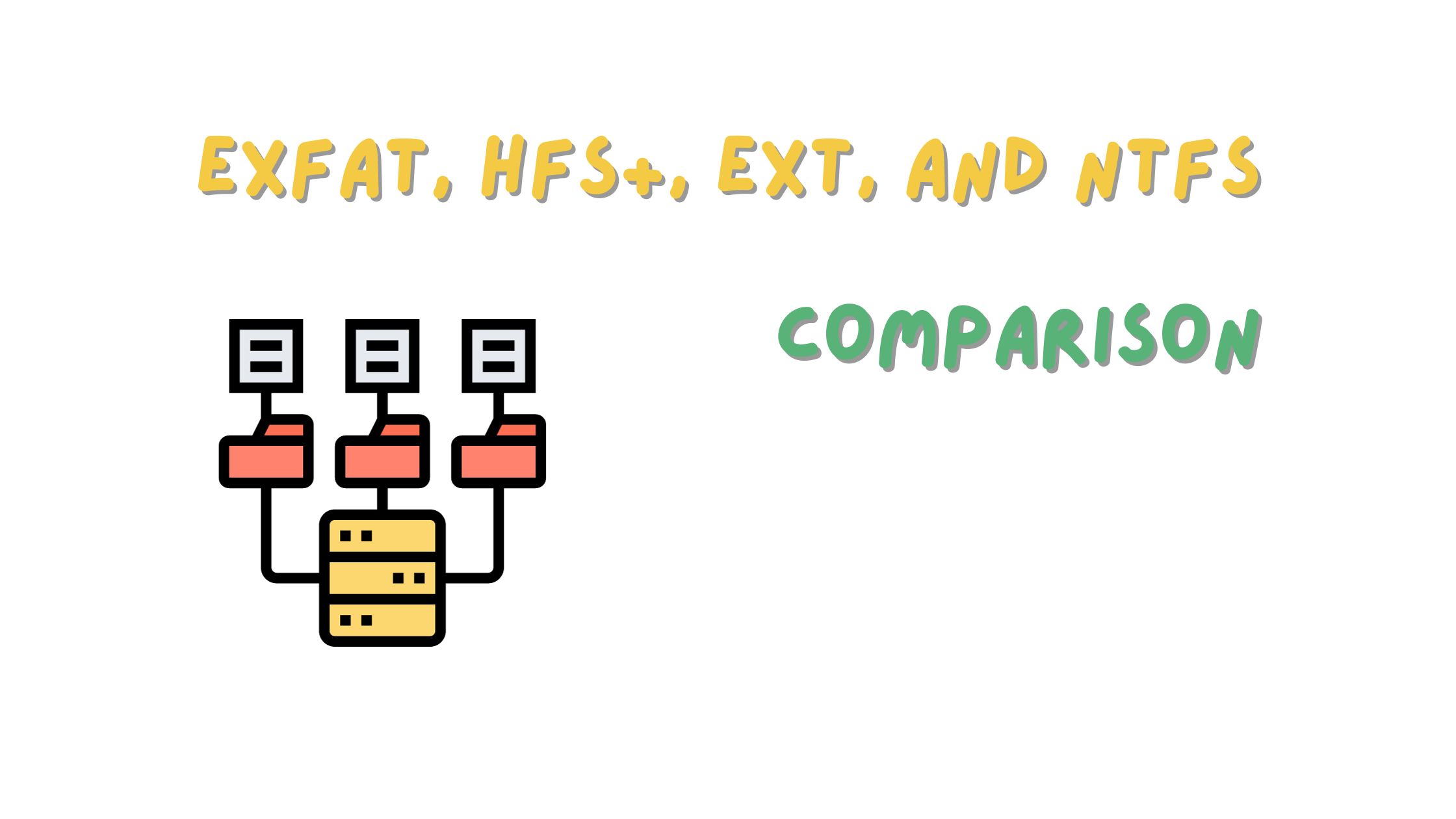There are many different file systems available, each with its strengths and weaknesses. In this blog post, we will compare four of the most popular file systems: exFAT, HFS+, EXT, and NTFS.
exFAT:
exFAT is a modern file system that is designed for use with portable storage devices, such as USB flash drives and SD cards. It is supported by most operating systems, including Windows, macOS, and Linux. exFAT has several advantages over older file systems, such as FAT32 and exFAT, including:
- Support for larger files and partitions
- Improved performance
- Better compatibility with different operating systems
HFS+:
HFS+ is the default file system for macOS. It is a powerful and reliable file system that offers several features, such as:
- Support for large files and partitions
- Access control lists
- File encryption
- HFS+ is not as widely supported as other file systems, such as exFAT and NTFS. However, it is a good choice for users of macOS devices.
EXT:
EXT is a family of file systems that is commonly used on Linux and Unix systems. EXT file systems are known for their reliability and performance. EXT4 is the latest version of the EXT file system, and it offers several features, such as:
- Support for large files and partitions
- Journaling for improved reliability
- TRIM support for SSDs
NTFS:
NTFS is the default file system for Windows. It is a powerful and flexible file system that offers several features, such as:
- Support for very large files and partitions
- Access control lists
- File encryption
- Journaling for improved reliability
- NTFS is widely supported by most operating systems, and it is a good choice for users of Windows and other operating systems.
Comparison Table
The following table compares the four file systems discussed in this blog post:
| Feature | exFAT | HFS+ | EXT4 | NTFS |
| Support for large files and partitions | Yes | Yes | Yes | Yes |
| Access control lists | No | Yes | Yes | Yes |
| File encryption | No | Yes | Yes | Yes |
| Journaling | No | No | Yes | Yes |
| Compatibility with different operating systems | Good | Fair | Good | Good |
The best file system for you will depend on your specific needs. If you need a file system that is supported by a variety of operating systems and can handle large files and partitions, then exFAT or NTFS is a good choice. If you need a file system that offers features such as access control lists and file encryption, then HFS+ or NTFS is a good choice. If you are using a Linux or Unix system, then EXT4 is a good choice.
I hope this blog post has been helpful. If you have any questions, please leave a comment below.
